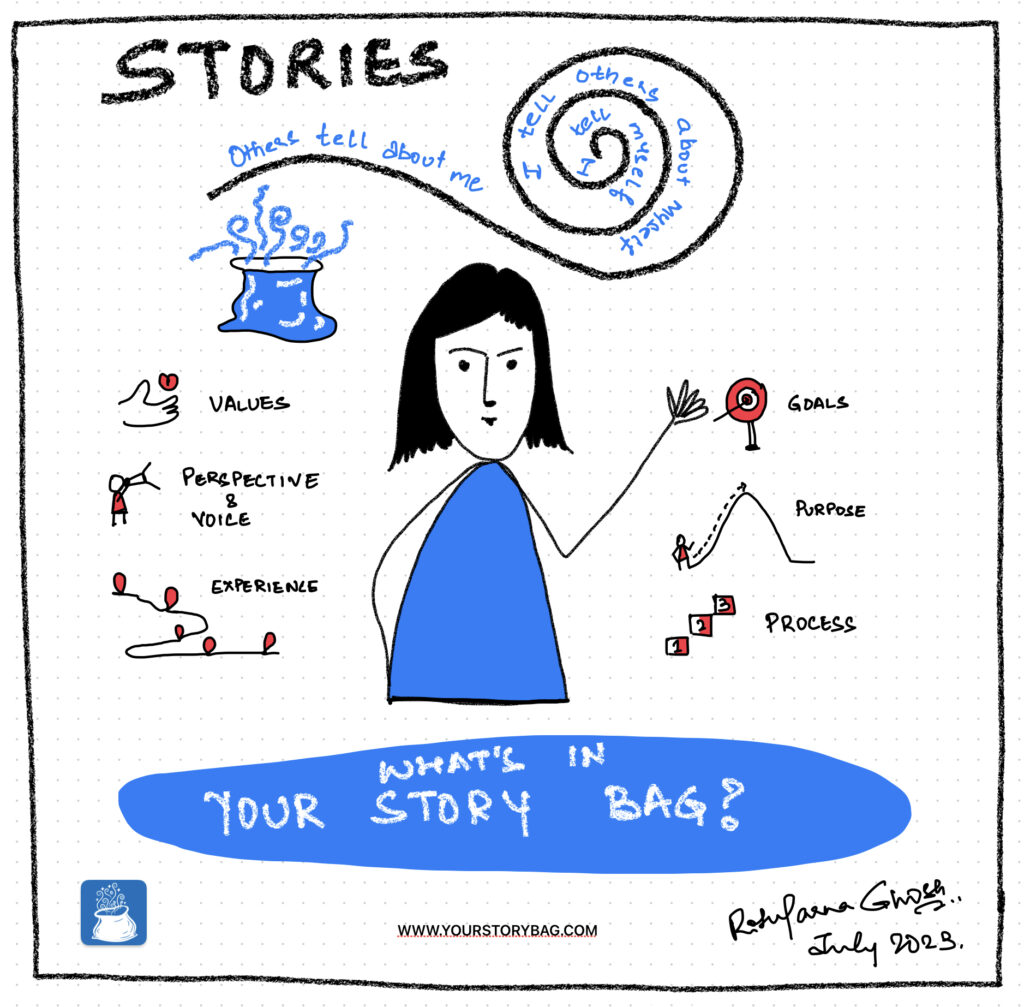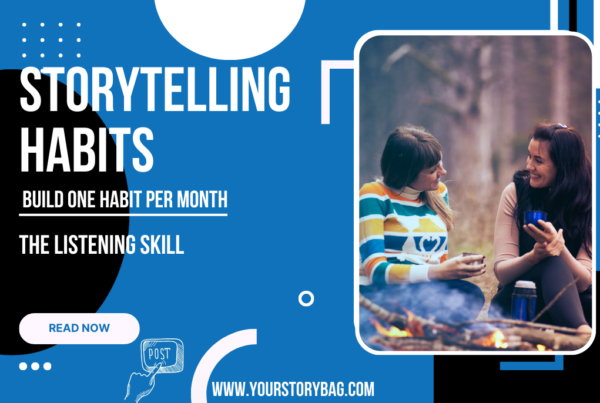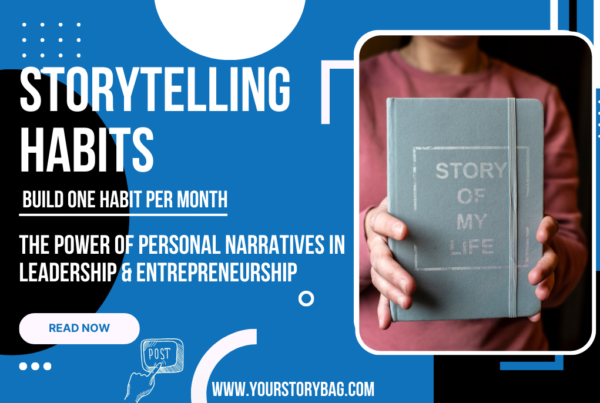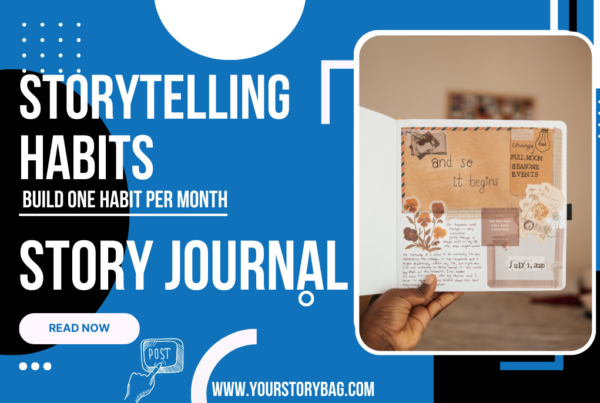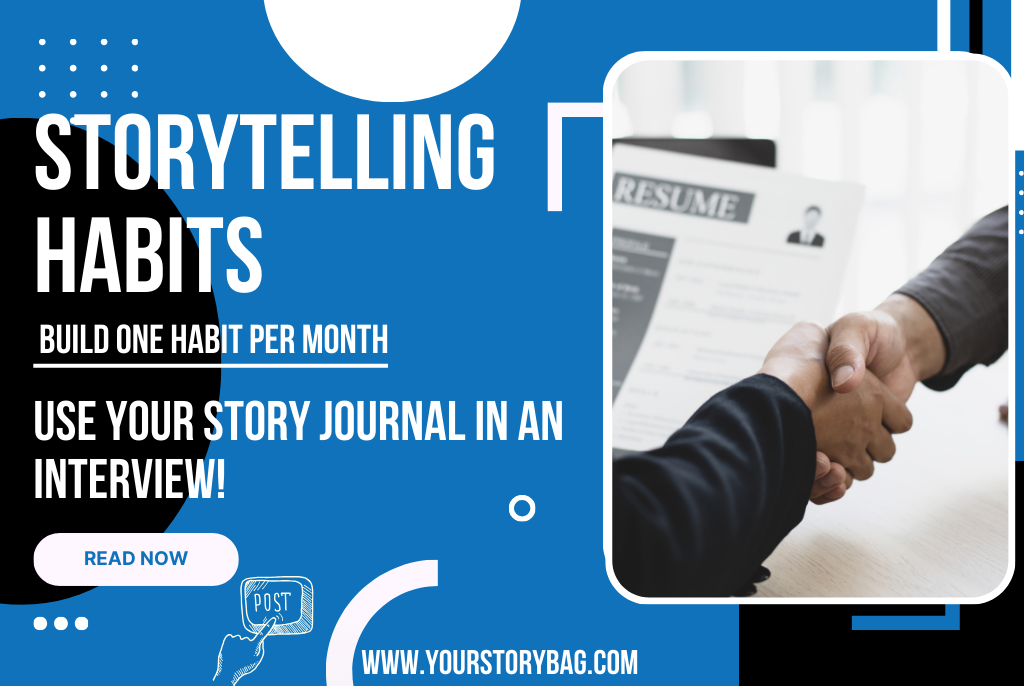
I am an ardent reader of Dan Roth’s Newsletter on LinkedIn. Last year, he interviewed one of my own storytelling icons, Sir Richard Branson.
In his podcast, Branson recommends that people tell their stories. He says, “I’d honestly think that everybody’s story is fascinating. I would encourage anybody to keep a diary. Every day just in conversations with people you’re going to learn something.”
Journaling your personal stories is IMP!! Period!! Remember, we are building Storytelling Habits all through this year and Journaling is the first Storytelling Habit that I want you to focus on this month.
Branson goes on to say how you can gather your stories and publish it as a book for your grandchildren someday. While I completely champion that, I can tell you a more current use of your stories.
You don’t need to journal your stories to tell them in the twilight of your life.
You journal your stories so you can tell them NOW & when you need them during an interview, a presentation, a talk or a conversation.
You can tell your life stories, the small everyday stories for minor transformations to give a window into who you are and what makes you unique!
So, what’s the use of Personal Stories? The one’s you journal?
- Slow Down – We are constantly on the clock. Hustling. Running. Traveling. Negotiating. Planning. Instructing. Debating. Surrendering. Consuming. Sharing. Our life energy is constantly on the flow. You are perhaps surrounded by people where you trying to project, fit into, stage a certain persona. There could be moments when you are the same person, or you could be different versions of you. The habit of story journaling lets you slow down and be you! It’s your most intimate moment of spending time with yourself, be mindful, analytical, reflective, honest, vulnerable and expressive. As you slow down, you spend time with yourself and enjoy that moment.
- Inward to Outward – All stories flow from the inside to the outside. When you have journaled a story, you really know what makes you unique. You are better able to reflect on your experiences, identify patterns of behaviours, actions and responses that have shaped your identity. You begin to gain insights into your strengths, weaknesses, opportunities that shape your future. You are better able to handle your insecurities & threats.
I know what you are thinking. So this habit is an exercise of self-care? Is there anything more?
How does this habit of journaling make you a better storyteller?
Let’s look at some specific examples now.
How will your Story Journal help you during an Interview?
When you are facing an interview, your interviewer is trying to get into your mind. He / She is trying to make sense of your past, judge the person you are today and predict your utility in the organisation in the near future. I wont say ‘distant’ future because a lot of us don’t get into jobs and roles to retire from them! What the interviewer is trying to see is whether you will are aligned with the organisation’s long term goals.
Here are a few tips to tackle some standard Interview Questions with stories that you have in your Story Journal:
- Tell me about yourself – Where does your story begin? You don’t want to go all the way back to your parents stories, but it is a good idea to talk very very briefly of your origin story. Where do you come from, what brought you into this field, what kept you in it, touch upon roles and responsibilities you have held so far, talk about transformations that you implemented & underwent yourself, talk about skills that have brought you here, and then what your aspirations are at the moment.
- How would you describe yourself as a ______ – This is a question that tests your self-analysis. No matter which domain you are in, invest in gathering stories about yourself. Ask people to describe you, highlight your qualities that make you unique in your role. These are things that can come up in everyday work. I am NOT asking you to list your achievements & awards, instead share the stories that show why & how did you deserve them! Be open to talking about your limitations, things that may have slowed you down.
- Tell me about a Failure – Failures are good! And you must have a story or two about failures in your bag. Don’t pretend you are a superhero! Remember to reasonable in talking about your failures. Accept weaknesses, accept limitations, do not pass the blame and draw out the learnings.
- What would do if_______ – These are questions that are testing your personality. These are traps that the interviewer would lay to see if you are really the person you have projected to be so far? If it is a scenario about being under pressure / deal with a certain mindset / approach to timelines and deadlines / about team dynamics / that tests your managerial & leadership style, pull out a similar story from your story bag. Tell them what you did before and why & how it is relevant now.
- How will you do this _________– This is a question that typically that looks at how aligned you are to the organisation and what it aims to do. Your story journal will hold the clue to opportunities that you want for yourself. For example, when I pitched my services to an UN agency, I had to tell & show them HOW would I do what I want to do with them. I played to my strengths, brought out relevant examples, shared samples and even created something for them even when they didn’t ask for it!
The idea of using stories is to open up different chapters of your life for the interviewer to see a trailer of who you are!
It’s human to forget stories, our brains reconstruct stories or wipes them out clean. So if you want your stories to work for you, you have to work to preserve them!
Talking of How to Ace interviews with Stories, read our older blog & watch the video on the topic.
Do you have an interview coming up? It’s time to sort out your story bag and pack the best for what you may need!
Looking for an extra hand to pick the right stories?
Book a Story Coaching call with me today!
Next week, stay tuned for the third edition of this series, on The Power of Personal Narratives | In Leadership & Entrepreneurship.

